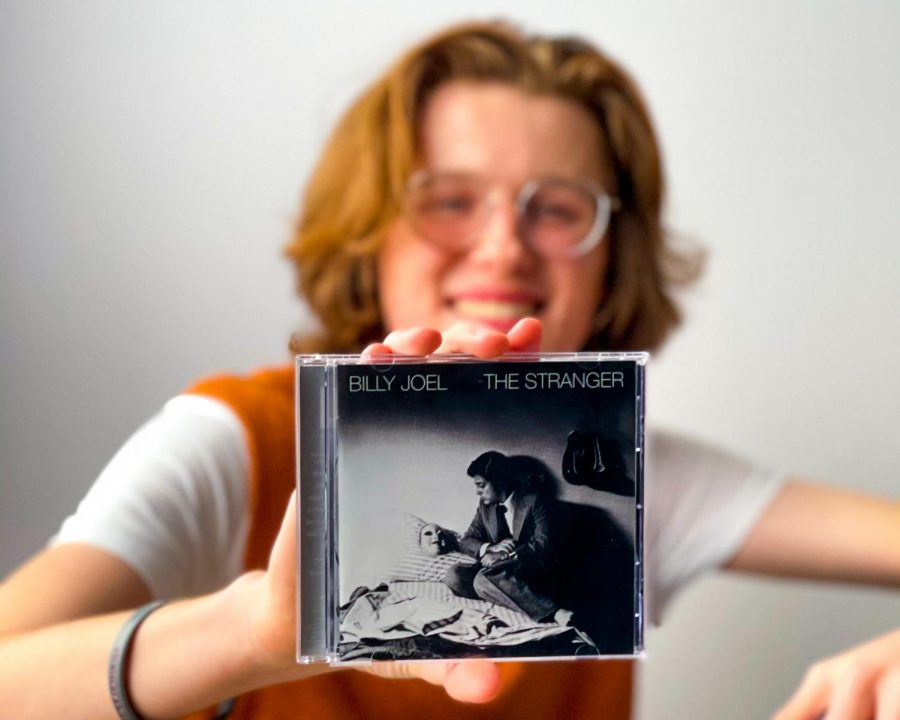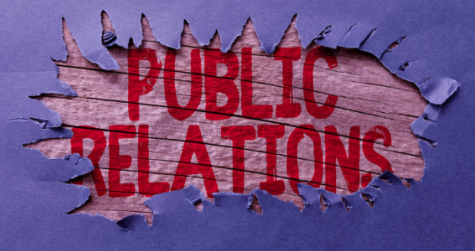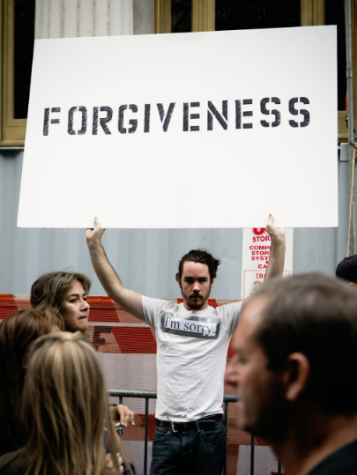“Slow down, you crazy child…”
Delve into what makes Billy Joel’s “The Stranger” so special
Ethan shows off his CD copy of “The Stranger.”
Released in 1977, Billy Joel’s fifth studio album, “The Stranger” is a deeply personal showcase of the power of storytelling through song. Nearly 45 years after its release, I wanted to take a leap into what makes this album tick.
The album opens with the hit “Movin’ Out,” telling the story of Anthony, a young man urged to leave home and pave his own path in the world. Desperate to not conform to societal norms, Anthony embarks on his journey, setting the stage for the rest of the album.
After the bombastic “Movin’ Out” wraps up, a piano melody opens the titular track, “The Stranger.” Overlaid with the piano chords is a hauntingly beautiful whistle, recorded in one take by Joel. A guitar riff kicks off the lyrics of the song, introducing us to Joel’s idea of the stranger.
“Everyone has a face that we hide away forever,” Joel sings in the track. With this track, this recurring idea of lying to oneself is presented; if everyone is hiding themselves away, then do we truly know anyone?
Joel’s tune changes on a dime as the next track begins. “Just the Way You Are,” told from a first person perspective, describes a relationship where the speaker accepts his partner for all her good and bad, in a way contradicting the ideal laid out in the previous track. If someone is hiding themselves away, is it possible to truly love her? By placing this love song directly after, Joel is encouraging his listeners to break a harmful societal norm represented by “The Stranger.”
The next song, in true Billy Joel fashion, weaves the story of ill-fated Long Islanders Brenda and Eddie as they fall in and out of love in “Scenes from an Italian Restaurant.” Often remarked as his favorite song in his discography, the passion Joel poured into this track is palpable. Spanning nearly eight minutes, “Scenes from an Italian Restaurant” covers themes of contentedness, heartbreak, and love in an incredibly honest way.
Having been divorced himself, Joel drew from his own experience as he chronicled the lives of high school sweethearts Brenda and Eddie as they divorce after hastily marrying and moving in with one another right after graduation.
“Slow down you crazy child,” the piano man belts, introducing the next song on the album, “Vienna.” Named for the city where Joel spent time reconciling with his estranged father, “Vienna” is a deeply moving arrangement. With it’s beautiful piano melody and striking lyrics, dry eyes will be a foreign concept to listeners.
Simply put, when Joel sings of Vienna, he is not singing about the Austrian city. While Vienna was the place he needed to reach in his life, the entire point of the song is that everyone’s “Vienna” is subjective. Vienna is an idea, a metaphor for the dream that everyone is chasing too hastily. This track serves as a gentle reminder from Joel directly to the listener that slowing down is alright; the world will not end if you take some time for yourself.
When the name Billy Joel comes to mind, the general consensus is that he is a storyteller first, songwriter second. With hits like “The Ballad of Billy the Kid,” “Captain Jack,” and “Piano Man,” Joel has been cemented as one of the greatest storytellers through song, begging the question, why is it that “Vienna,” a song with no characters, and no story has become beloved in the hearts of so many?
At the end of the day, “Vienna” is just a piano man and his words. There is no need for any fluff to keep the listener there, because a gentle reminder that it will be okay is enough.
Joel asserts that the thrill of life comes from chasing a goal, rather than achieving it. Joel soothes these fears by assuring his audience that “Vienna waits for you.” Elegant in its simplicity, “Vienna” is one of the finest pieces of music ever composed.
Shortly following is perhaps the most out of character choice on the album, “Only the Good Die Young.” Where the previous songs tackled world views and heavy ideas of dreams, identity, and self worth, here Joel sings “I’d rather laugh with the sinners than cry with the saints.” Tackling the more mischievous parts of adolescence, “Only the Good Die Young” may be a bit odd when concerning the album’s overall themes of desire and yearning, but that does not stop it from being a head banger.
Consisting of only nine tracks, the first six songs read like a Billy Joel greatest hits collection. Rounding off the album are three songs that Joel superfans will recognize. Leading the charge is “She’s Always a Woman,” continuing the theme of unconditional love set forth first in “Just the Way You Are.” Next up is “Get it Right the First Time,” a track where Joel expresses his disdain for first impressions, preferring to learn of someone’s character through their actions. One could argue this ties back to the recurring idea of “The Stranger,” that everyone puts on a mask; Joel chooses to see beyond this.
“Quiet desperation as I wander through this world in which I live,” Joel states in the final track. Yet again, the speaker yearns for something more, their “Vienna.” However, in perhaps the most confusing turn of events on the entire record, after Joel finishes his crooning about the commonality of everyone’s desires, a familiar melody comes in: the opening whistle to “The Stranger.” The haunting chords reaffirm the idea that perhaps while we all yearn for something more, we are all held back because we lie to ourselves about whom we are, painting the album in an almost tragic light.
“The Stranger” came about when the piano man’s career was prophesied to end. After the underwhelming release of his flop album “Turnstiles,” Joel’s label, Columbia Records, was looking to drop him. Given one final chance to sell records, he released “The Stranger” to widespread success, landing four hit singles.
Not only was it a commercial success, “The Stranger” deals with themes of emotion and the human experience in a more mature and experimental way than much of the other music at the time, sealing its place as one of the greatest of all time. While the album itself may play as a tragedy, Joel’s message of lying to oneself will serve as a cautious reminder to listeners for generations to come.

EDEN WALKER’s first love is writing. Having spent two years on staff already, they are excited to see what their third and final year writing for...

EDEN WALKER’s first love is writing. Having spent two years on staff already, they are excited to see what their third and final year writing for...









Cali Caputo • Feb 8, 2021 at 9:06 pm
Wow, this article is incredibly thought-provoking, and an interesting take on the famed songwriter! I would even go as far as to say that I would be best friends with whoever wrote it!
reed milliken • Jan 26, 2021 at 10:29 pm
yeah this is bomb